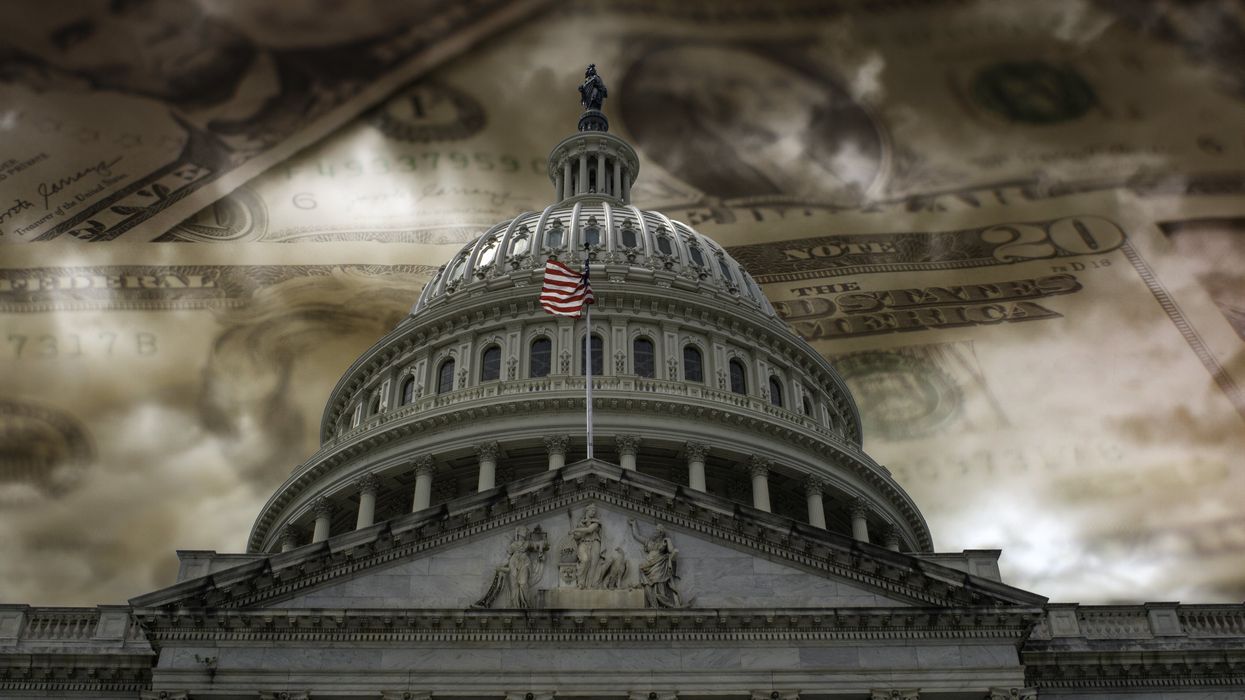Clements is the president of American Promise, a nonprofit advocate for amending the Constitution to allow more federal and state regulation of money in politics.
On Feb. 13, in the deep red state of Wyoming, a majority of state House members voted for Joint House Resolution 0002, calling on Congress to propose a constitutional amendment to ensure transparency in election spending and allow states to regulate corporate, union and other political contributions.
Wyoming legislators demonstrated again the deep, cross-partisan support for amending the U.S. Constitution to empower Americans to stop the systemic corruption that comes from out-of-control political spending. While the resolution didn’t receive the needed two-thirds vote, the strong majority support (35-26) shows that Wyoming lawmakers, as with most Americans, know the urgency of ending the domination of dark money and outside influence in elections.
Americans oppose out-of-control political spending because it undermines their own rights of free speech and a level playing field in voting and representation. Past Supreme Court decisions – Buckley v. Valeo, reinforced by Citizens United v. FEC – removed power from voters and state and federal lawmakers to set limits on political spending. The theory – unprecedented for 200 years of American history – is that those with massive financial resources have a “free speech” right to deploy those resources, with no limits, to influence election outcomes. Spending in elections by groups, billionaires and even foreign governments has been rising at an alarming rate. Nearly $16 billion may be spent in the 2024 cycle alone, up more than 30 percent from the last presidential election.
The American government is supposed to be of, by and for the people, but our current pay-to-play politics has deteriorated into a government bought, paid and sold to the highest bidder. Social media and advertising disinformation campaigns are funded from the shadows, influencing elections with no accountability. Worse, foreign actors exploit the dark money system to manipulate elections and serve their own interests.
Americans have had it with this dangerous Supreme Court-imposed theory about money and free speech. In Wyoming, recent polling shows that 87 percent of voters agree that the coercive influence of money in politics threatens democracy. The constitutional amendment to enable states and Congress to set reasonable limits to regulate campaign spending is favored by 75 percent of Wyoming voters. These extraordinary super-majorities mirror what American Promise is seeing in polling and ballot initiatives around the country.
Now, Wyoming and others are vying to join the 22 states that have taken formal action to advance the For Our Freedom Amendment, the only enduring way to regulate political spending by giving the states and Congress power to set reasonable limits. In November 2023, 86 percent of Maine’s voters approved a law banning spending in elections by foreign government-controlled entities. Maine’s voters, concerned that unhinged claims of “free speech” rights to unlimited election spending might even extend to foreign actors, showed foresight in including a resolution calling for the constitutional amendment: After the foreign money ban was passed, foreign-owned corporations sued in federal court, claiming a free speech right to dominate Maine’s elections with their money. The For Our Freedom Amendment would put an end to such foolishness.
In Pennsylvania, legislators introduced a bipartisan resolution calling for the constitutional amendment solution. Wisconsinites and Arizonans are organizing to move their state into the victory column, and Minnesotans have an amendment resolution moving through the legislative process. Momentum is building because Americans are tired of having the fate of the country and our communities determined by an elite donor class. But that elite is outnumbered. The fact is, 86 percent of Republicans and Democrats agree that money in politics is a threat. It’s time to act, and that’s exactly what these states are doing.
The vote in Wyoming is part of the tipping point that brings constitutional solutions faster than many realize when the need is clear. This constitutional amendment process is the time-honored way that Americans drive reform in the darkest hours. At the beginning of the 20th century, when division, political violence, gender-restricted voting and white supremacy dominated much of the country, The Washington Post’s editors solemnly sniffed at those proposing constitutional amendments. Over the next several years, Americans ratified four amendments, the first of twelve that Americans would secure in the 20th century.
Now the promise of American democracy is on the line again. As Wyoming just showed, Americans know what to do.




















Trump & Hegseth gave Mark Kelly a huge 2028 gift